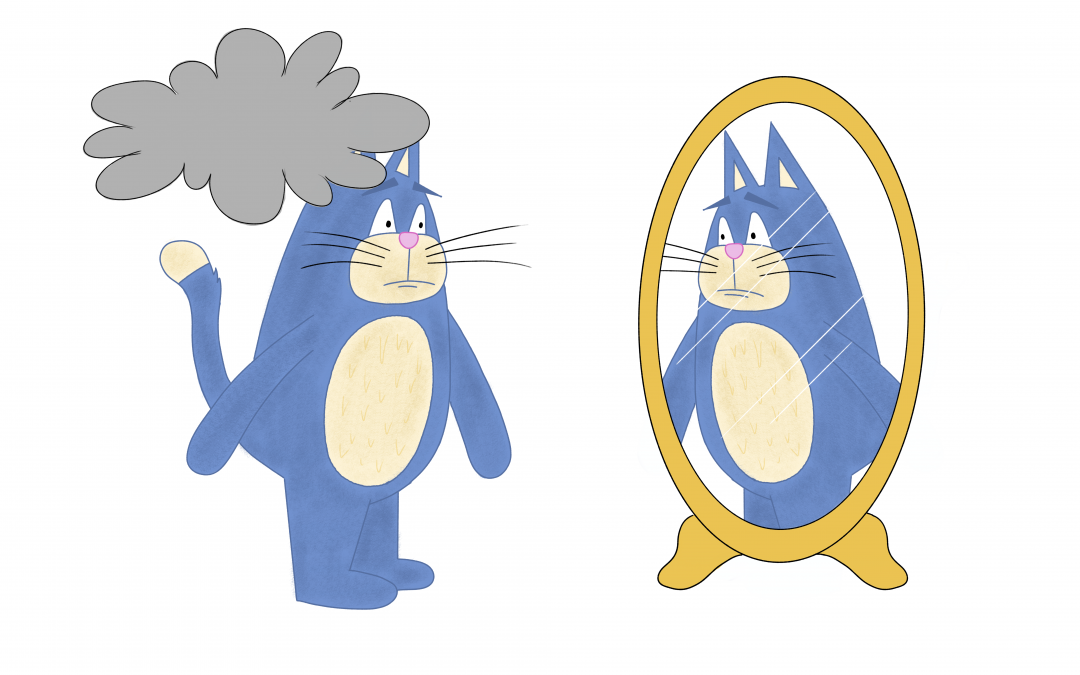
One of the toughest aspects of school is not the school work, but The Peer Group (capitalisation intended). When I consider a child’s desire to experience a sense of belonging, and the desire to be liked and accepted, one story in particular comes to mind.
The scene
I had a class of middle primary students, and the Australian Football League was very popular with a particular group of boys – I’ll call them the footy-boys. For the footy-boys, silent reading in the library meant crowding around the sports pages of the newspaper. I cannot tell you how many times I have read, ‘On the weekend, we went to the footy.’ These boys also spoke of how well they had played or made complaints against the umpires (the language of the devoted fan).
The boast that failed
It was a Monday morning and I began the day by asking the class about their weekend. A boy (I’ll call Simon), who was not part of the footy-boy group, announced that he had gone to the footy. The footy-boys were immediately interested, ‘Who did you see play?’ With all eyes on Simon, he stated the name of a high-profile team. One of the footy-boys was quick to point out that, that particular game had been played inter-state. Simon’s expression dropped. He had not been to the footy but had wanted them to believe that he had. I moved the discussion on in an attempt shorten the moment, but the moment had happened. Simon’s attempt to be liked by the footy-boys had backfired and had backfired badly.
The desire to fit in
Surely all of us have a story or two where we told a lie or did something out of character to fit in at school. For me in primary school, it was hanging around with a group who snuck out of the school and went into the bush to smoke. I didn’t really even smoke properly (so I was told) but I felt privileged and cool to be with them. How on earth did we get away with it?
Behaviour within a context
When we teach children about making good choices we cannot ignore their daily context. Encouraging behaviour that is honourable and conscientious may, to a child, almost seem counter to what is required to fit in. Many children make poor decisions because of The Peer Group. I recall my mother’s frequent rhetorical question about jumping off cliffs or into lakes if the other kids were doing it too. She demonstrated no understanding of the potential cliffs and lakes that I encountered daily, and my desire to fit in. The truth is, I would have jumped off cliffs and into lakes if it meant being liked.
Deconstruct before you Construct
I will explain how this works with an example from mathematics. A child’s pre-existing knowledge of whole number can block their understanding of decimal fractions. During the younger years of primary mathematics, children are taught in whole numbers. They may even be taught that the number ‘one’ is the smallest. Before children learn about decimals, we need to deconstruct their idea of how numbers can exist. When learning decimals, children are not only having to learn about new place-value columns, but they are having to reconstruct their idea of number and value. The pre-existing concepts need to be deconstructed before we can construct new knowledge.
Deconstruct the Peer Group.
We need to teach children about The Peer Group:
- acknowledge that The Peer Group is important to them, but also acknowledge that The Peer Group may not be reliable, not dependable, not consistent, not right and not very nice
- provide a bigger picture for them, because Peer Groups will come and go and change along the way
- encourage your child to focus their attention on their core group of friends, and to gain strength and encouragement from trusted adults
- teach them about friendship and what it means to accept each other, to not make demands, and that they should not have to prove themselves
- help them see that true friendship qualities are not consistently present in the broader group
Your child’s opinion about themselves is what matters, especially within the context of The Peer Group. Their ability to relate to others in a healthy manner will stem from their ability to relate to themselves.
Tough choices
Children need to be taught about making good decisions within the context of The Peer Group. They need specific examples of the potential scenarios that may require them to make a decision that is contrary to what The Peers may want. Making decisions that are contrary to the broader group requires a lot of grit, but it is better in the long term. Can you prepare your child for this? Let them know that it is challenging, it is difficult and that it takes courage. It might also leave them feeling isolated, but the reward is knowing they made the right decision. Help them understand that there is discomfort on both sides of this decision. Rejection that has come at the cost of making the right decisions is a discomfort worth having and is better than the discomfort that comes from doing the wrong thing.
Teach the child and you teach the adult
What can we hope for from this? Set your sights on the long-term consequences of the adult whom they will become. I have seen too many adults who are afraid to say no and who consistently over commit themselves. They say yes to everything asked of them. These adults lack boundaries and lack an internal, barometer that informs of their own need for self-care to protect their well-being. It is possible and essential, to see to your responsibilities in a manner that allows for good emotional health.
Never underestimate how difficult this can be for children to learn.
Click here to sign up to our Newsletter for the latest articles and events
A related article regarding the school experience for children is Back to School; what does this mean for your child?
About Gwen
Gwen is a school teacher, counsellor, author and presenter. Gwen’s counselling practice caters particularly for children, adolescents, teachers and parents, as well as generalised counselling. She works with individuals in relation to mental health and wellbeing. Gwen is the author of Bully Resilience: Changing the Game. See www.equipcc.com.au for more information.


Recent Comments